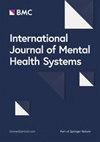实施危机解决小组服务改进计划:成功关键因素的定性研究
IF 3.1
2区 医学
Q2 PSYCHIATRY
引用次数: 0
摘要
危机解决小组(CRTs)为处于精神健康危机中的人提供居家护理,以替代入院治疗。在英格兰,危机解决小组的成功率参差不齐。为此,"危机解决小组优化与复发预防(CORE)"研究开发并试用了一项为期 12 个月的基于忠实模型的服务改进计划(SIP)。本文介绍了对 CRT 工作人员、管理人员和计划促进者观点的定性评估。我们确定了实施过程中的障碍和促进因素,以及改善服务的机制。我们采访了六个特意抽样的 CRT 的管理人员和工作人员,以及六名受雇支持服务改进计划实施的促进者。我们进行了半结构化焦点小组和个别访谈,并使用主题分析法进行了分析。大多数参与者认为,服务改进计划的所有组成部分都有助于改进实践,但在线资源的使用率较低。实施过程中遇到的障碍主要集中在员工缺乏时间和主人翁精神方面。高级职员和促进者的支持对于团队开展与 SIP 相关的工作至关重要。所有参与的利益相关群体都报告说,使用忠实度模型来衡量他们的 CRT 工作是否符合最佳做法,并感觉自己是 "更大整体 "的一部分,是非常有价值的。CRT 工作人员、管理人员和计划主持人认为,结构化的服务改进计划有助于提高对最佳实践模式的忠实度。灵活性(来自所有利益相关者)是使服务改进行动在时间和资源匮乏的团队中得以管理的关键。本文章由计算机程序翻译,如有差异,请以英文原文为准。
Implementation of a crisis resolution team service improvement programme: a qualitative study of the critical ingredients for success
Crisis Resolution Teams (CRTs) offer home-based care for people in mental health crisis, as an alternative to hospital admission. The success of CRTs in England has been variable. In response to this, the CRT Optimization and RElapse prevention (CORE) study developed and trialled a 12-month Service Improvement Programme (SIP) based on a fidelity model. This paper describes a qualitative evaluation of the perspectives of CRT staff, managers, and programme facilitators. We identify barriers and facilitators to implementation, and mechanisms by which service improvements took place. Managers and staff from six purposively sampled CRTs were interviewed, as well as six facilitators who were employed to support the implementation of service improvement plans. Semi-structured focus groups and individual interviews were conducted and analysed using thematic analysis. A majority of participants viewed all components of the SIP as helpful in improving practice, although online resources were under-used. Perceived barriers to implementation centred principally around lack of staff time and ownership. Support from both senior staff and facilitators was essential in enabling teams to undertake the work associated with the SIP. All participating stakeholder groups reported that using the fidelity model to benchmark their CRT work to best practice and feel part of a ‘bigger whole’ was valuable. CRT staff, managers and programme facilitators thought that a structured service improvement programme helped to increase fidelity to a best practice model. Flexibility (from all stakeholders) was key to enable service improvement actions to be manageable within time- and resource-poor teams.
求助全文
通过发布文献求助,成功后即可免费获取论文全文。
去求助
来源期刊

International Journal of Mental Health Systems
PSYCHIATRY-
CiteScore
6.90
自引率
2.80%
发文量
52
审稿时长
13 weeks
 求助内容:
求助内容: 应助结果提醒方式:
应助结果提醒方式:


